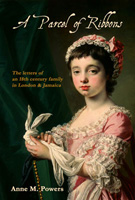Signing the Preliminary Treaty of Peace at Paris, November 30, 1782.*
Following the 4th of July celebrations of America’s Declaration of Independence from Great Britain in 1776, I thought it interesting to quote from a letter which demonstrates that this was, to slightly mis-quote Churchill, not the end, or even the beginning of the end, but merely the end of the beginning.
Six years later, on the 6th of December 1782 Robert Cooper Lee wrote to his second son Richard who had been sent first to Brussels, and then to Hanover, to learn how to be a merchant.
Robert Cooper Lee to Richard Lee
Bedford Square, 6th December 1782
My dear Richard,
One of the most important Events in the Annals of Great Britain has taken place. The Independency of the United States of America. On the 30th of November Provisionary Articles were signed at Paris by his Majesty’s Commissioners and the Commissioners of America, to constitute a Treaty of Peace, when the Peace shall be agreed upon between Great Britain and France. This previous Step, the signing of Articles with America being an Acknowledgement of her Independence, has removed the principal Obstacle to a general Accommodation. The Parliament met yesterday, and was opened by one of the longest Speeches from the Throne that has been made for many Years; it contains great Variety of Matter and expressly declares the Dismemberment of the Empire by the Seperation of America. The Address in the House of Commons was moved by Mr Yorke and seconded by Mr Banks. There was no Amendment moved. Mr Fox Lord North and Mr Pitt spoke, but there being no Opposition to the Address it is called a Conversation, and not a Debate. All Parties seemed agreed on the Necessity of assenting under the present Circumstances, to American Independence. And equally agreed with respect to France and Spain to accept of nothing short of honourable Terms of Peace. How that can be reconciled to the Idea of giving up Gibraltar I cannot see, yet that is confidentially talked of, and that the Spaniards are to give us the Island of Porto Rico in the West Indies in Exchange. Our captured Islands to be restored to us, and St Lucia to the French. In the East Indies the French demand to be put in the same Situation they were in prior to the last War, but that cannot be agreed to on our part. The prevailing Opinion here is that a general Peace will take place. Our political Barometer the Stocks have risen five or six per cent. I would send you Woodfull’s Paper with the King’s Speech and the Debates on it, but I conclude you will easily get a Sight of them.
A Frigate the Resource from Jamaica arrived a few days ago; she left Jamaica the 14th of October, and brings to Government Intelligence that the French and Spaniards were preparing to make another attempt on that Island. Don Solana with the Spanish Ships was about proceeding to the Cape, where the land Forces intended for the last Expedition had continued; they expected to meet the Reinforcement of Ships and Troops from France that sailed in September, when Lord Howe sailed, and to make a force of 25,000 Men and 25 Ships of the Line. Admiral Piggott from America would be soon after them, and Admiral Hughes with the Ships detached from Lord Howe’s Fleet shortly afterwards. I therefore trust Jamaica will escape this Danger. Have you seen Sir Edward Hughes’s Accounts in the Gazette of our Engagements with the French Fleets in the East Indies?
These ‘Provisionary Articles’ were finally ratified by the US Congress on the 14th of January 1784.
For a family whose income depended on the free movement of trade, any war caused difficulties at best and disaster at worst, Robert Cooper Lee’s comment about the improved price of ‘Stocks’ shows that the reaction to the prospect of peace was very favourable. And as can be seen from the second paragraph of the letter the threat to Jamaica had been very real. For an island only just recovering from the disastrous hurricane of 1780, and the several more that followed in that decade, the arrival of peace was more than welcome.
You can read all the Lee family letters in the book A Parcel of Ribbons.


